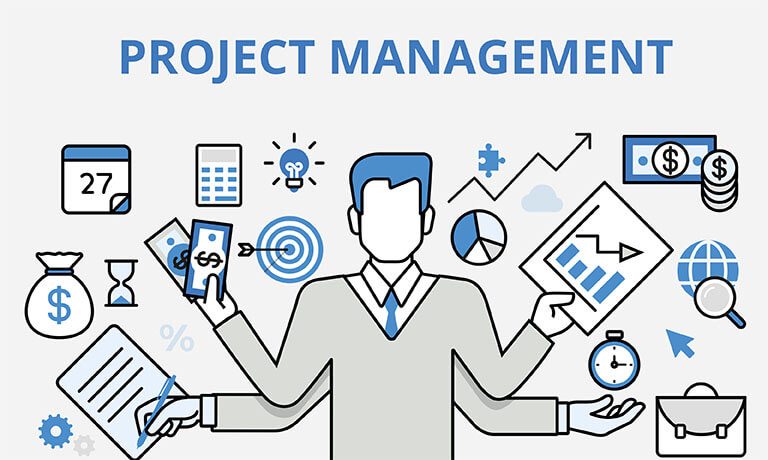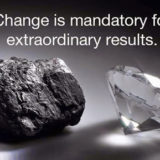
Great project managers aren’t born, but it does take a certain sort as the saying goes. There will always be a balance between a project manager’s instinct and experience and the adherence to a flexible yet predefined project management methodology. All good project managers will possess a combination of acquired experience, a recognized qualification in project management like PRINCE 2, and the right aptitude and soft skills.
Whilst certification and associated project management methodology enable a project manager with the basic competencies, there is a lot to be said for the soft skills that a project manager brings to the role. Let’s take a look at several characteristics that make great all around project manager.
A Great Organizer
Managing projects is a complex and highly demanding job that has been compared to herding cats. Managing and overseeing different resources, subcontractors, as well as your own project team requires a structured project management methodology; but it also requires a project manager with innate organizational skills. This means breaking down complex tasks into smaller more manageable tasks, properly sequencing them, delegating to the right people and maintaining oversight for the entire project lifecycle in order to make sure timelines and budgets are met.
Great project managers are also excellent time managers with an instinctive ability to prioritize the right things over the less important. With only so many hours in the day, it’s important for a project manager to stay focused on the bigger picture, whilst maintaining the ability to deep-dive into specific activities within the project when needed. Throughout all this, great project managers must keep everyone informed with regular team meetings and client / stakeholder updates.
A Strong Leader
Many people mistake leadership qualities for the ability to manage people but there is far more to being a good leader than management. Empathy, emotional intelligence, diplomacy, judgement and the ability to inspire and motivate are all just as important facets to strong leadership as having managerial experience. Good leaders know when to speak and when to listen and this comes from a keen situational awareness and high emotional intelligence.
Projects are often complex affairs which require involvement from cross-functional areas of the business and this means inevitably that interests, agendas and personalities will sometimes clash. Great project managers will be able fight their corner whilst listening, appreciating and empathizing with other points of views.
Excellent Communicator
There are two sides to being a strong communicator and both can be found in great project managers. The first is the ability to communicate face to face with those around you and the second is a working understanding of how communication plays a role in the execution of projects.
Good communication is essential to team dynamics but it is also a utilitarian skill that allows for the effective strategizing of deadlines, outlining of goals and tasks as well as the ability to adapt to challenges as and when they arise. Projects are complex and rarely go according to plan. Having project team members properly informed with the broad context of the project as well as specific issues makes the entire team more effective overall.
It’s important that project managers establish and maintain strong two-ay communication channels with all stakeholders involved in the project, from subcontractors to senior management and the steering committee. Knowing when to communicate and what to communicate in these instances is key. Too much communication and you risk overloading people with information, too little and you risk leaving key stakeholders in the dark.
Strategic Thinking
It’s all too easy for project managers and project teams to get caught up in the details and lose track of the wider issues and strategic aims. Projects undertaken by large organizations can be subject to a wide range of internal and external events as well as have their own often unpredictable internal and external consequences. These may be financial, economic, legal, reputational or environmental in nature. A great project manager is able to see the wood for trees at all times, maintaining a higher level and strategic perspective on what the project is hoping to achieve and how the various ramifications play into this strategic outcome.
This requires project managers to act as strategic thinkers, applying their knowledge of the company, the project and its ramifications so as to steer the project to an outcome that fits with multiple business objectives.
Integrity and Accountability
Project management is demanding and the buck often stops with the PM when it comes to shortcomings, scope creep, and errors. Ownership of the project by the project manager and his or her team requires accountability. We’re not talking about defending the project in the face of all criticism, but rather the courage and the integrity to be associated with its mistakes as well as its achievements.
In many ways, integrity and accountability aren’t so much soft skills as personality traits and, as such, are very hard to teach to individuals. Great project managers will have pride in what they do and in turn be willing to take the accountant ability for the decisions that they make. This is often a consequence of confidence in their own competence and judgement, something that will invariably be borne out by experience.
Good Judgement
Regardless of which project methodology used or the amount of planning done, there will almost always be grey areas in any project that fall outside of the normal pre-defined boundaries. These grey areas could include conflict between various areas of the business, unseen complexities with merging systems and processes, ambiguities in the project plan and so on.
A great project manager requires good judgement in order to navigate these often tricky waters and steer the project back onto familiar turf. Knowing when to deviate or adapt the methodology to suit a very particular set of circumstances is about understanding the forces at play and much of the time this can come down to people and politics. While it isn’t advisable to get caught up in internal corporate politics, it can be sometimes be required and a great project manager will have the awareness and good judgement to adapt to new situations quickly.











